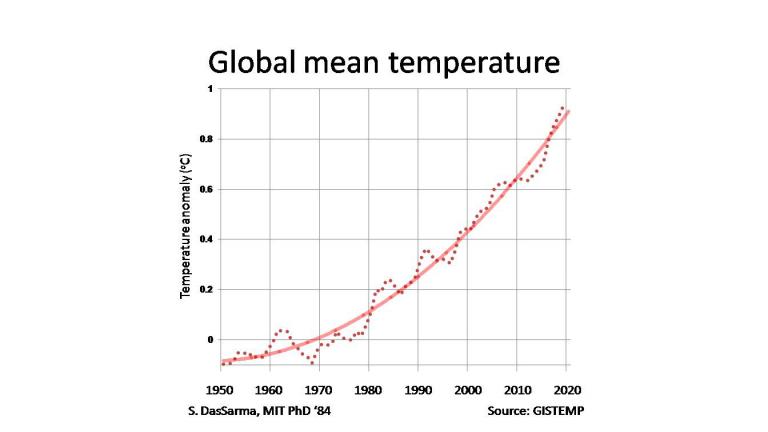
At the end of the second decade of the 21st century, it is sobering to review some of the monumental records set around the world. A recent report from NASA and NOAA found that the past five years each ranked as the five hottest on record globally similar to 19 of the past 20 years in this century. At the start of 2020, January has already been the hottest on record in Europe, 3.1 °C warmer compared to a 1981-2010 baseline, with parts of the northeast of the continent extraordinarily (6.1 °C) warmer. In addition, a new record high was recently reported on the continent of Antarctica, 20.7 °C, beating the previous record of 18.3 °C set a few weeks earlier. Meanwhile, in Australia, after experiencing the driest spring on record in 2019, the country recently recorded its hottest day ever, with an average high of 41.9 °C (107.4 °F), which was 1 °C higher than the record set the previous day.
All of these temperature records are fueling destructive weather events in 2020, for example increasing wildfires around the world chronicled in a Science Brief report. The exceptionally dry and hot Australian summer has led to the worst wildfire season ever, with an area larger than Austria burned. Extreme summer temperatures and strong winds also resulted in wildfires near Valparaiso, Chile, similar to what we saw again last year in California. In the Mediterranean region, "Medicanes" such as Gloria flooded a river delta in eastern Spain and they are occurring more frequently. Closer to home, five winter tornadoes were reported in the Washington DC region during a recent unnamed storm. The worldwide effects of extreme weather events as a result of climate change are so concerning that the headline of a recent Paul Krugman (MIT PhD '77) opinion column in the New York Times was: "Apocalypse Becomes the New Normal".
The long-term effects on the forests and oceans of the world, our buffers against global catastrophe from climate change, suggest that we are quickly progressing toward a tipping point. The unrelenting and deliberate burning of the Amazon may be pushing 'the lungs of the world' to a point where corrective action may no longer be possible. The Greenland ice sheet is losing unprecedented amounts of ice with an ever increasing contribution to global sea-level rise. Studies of Antarctic glaciers are on-going, and early results suggest that these are contributing even more substantially to sea-level rise. Another study of ocean currents recently concluded that substantial acceleration in global ocean circulation has occurred in the past few decades, intensified by surface winds and reaching kilometer depths. All of these are the result of climate change leading to record high temperatures of the oceans, which were the hottest ever in 2019, and before that in 2018, and before that in 2017, a disturbing repeating trend on a global scale.





